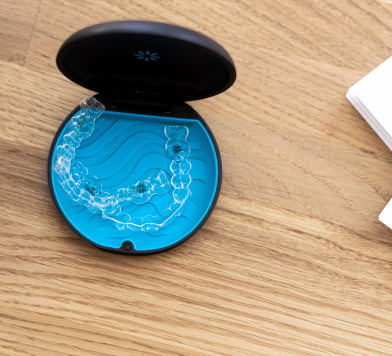Dental anxiety is a prevalent issue, affecting a significant portion of the population. The mere thought of a dental appointment can induce anxiety in some individuals, leading to postponed or completely avoided dental care. This blog discusses practical strategies to manage dental anxiety, ensuring a less stressful and more positive experience at the dentist’s office.
Dental anxiety involves fear, stress, or unease about going to the dentist, which can stem from various factors such as past traumatic experiences, fear of pain, or the sounds and smells associated with dental clinics. Recognising the sources of your anxiety is a critical first step in managing it effectively.
One of the most effective ways to manage dental anxiety is open communication with your dentist. Don’t hesitate to express your fears and concerns. Dentists are trained to help anxious patients and can adjust the treatment process to make it more comfortable for you.
Having a trusted friend or family member accompany you to your appointment can provide emotional support and reduce anxiety. A companion can also help distract you during treatment and offer reassurance.
Distraction can significantly reduce anxiety during a dental visit. Some clinics provide TVs or music to help distract patients. Alternatively, you can bring headphones and listen to your favorite music, audiobook, or podcast during the procedure.
Mindfulness techniques and deep breathing exercises can help control anxiety by focusing the mind and promoting relaxation. Practice these techniques before and during your dental appointment to help calm your nerves.
For those with severe dental anxiety, sedation dentistry may be an appropriate option. Sedation can range from mild (nitrous oxide or “laughing gas”) to moderate (oral sedatives or IV sedation), depending on the severity of anxiety and the dental procedure. Discuss sedation options with your dentist to find out what might work best for you.
Avoiding the dentist can lead to a cycle of avoidance and increased anxiety. By scheduling regular visits, you become more familiar with the dental environment, which can help reduce fear over time. Regular appointments also allow for minor issues to be addressed before they become more serious, potentially requiring more invasive treatments.
If you haven’t been to the dentist in a while, start with a simple check-up or cleaning. These less invasive procedures can help you build trust with your dental team and gradually decrease your anxiety.
Try to create positive associations with dental visits. Reward yourself after appointments with small treats like going to the cinema, enjoying a favourite snack, or engaging in a relaxing activity. Positive reinforcement can gradually change your perception of dental visits.
Select a dental practice that is known for handling anxious patients compassionately. Look for clinics that emphasise patient comfort and use modern techniques to reduce pain and anxiety.
Managing dental anxiety is crucial not only for your dental health but also for your overall well-being. By applying these strategies, you can make your visits to the dentist more bearable and less stressful. Remember, you are not alone, and help is available to make your dental experience as positive as possible.
For further support and to discuss more personalised strategies to manage your dental anxiety, contact Mumbles Dental. Our caring team is dedicated to providing a comfortable environment for all our patients, ensuring you receive the best possible care without stress.
BACK TO BLOGWe Love our Patients
"I am so glad I've discovered Ali, Duncan and the team at Mumbles Dental Spa. I felt let down by my last dentist and so was a bit fearful of finding someone new. I went..."
Emma P
"Been waiting over a year on NHS for tooth extraction, so decided to give Ali a visit after family recommendations. Let's face it, dentist visits aren't exactly nice, but I was actually excited about this..."
Rachael C
"Thank you very much to Ali and his team for making me feel very relaxed at my first appointment and explaining everything to me. Recommend these guys 100%."
Gander C
"I got a wisdom tooth removed at the Mumbles Dental Spa recently and was a bit nervous about it. It turned out to be a really good experience. I felt in the best hands with..."
Kuni W
"Amazing care at Mumbles Dental Spa, as always! All the girls from Caroline, the receptionist to Beverly, the hygienist to my new dentist Ali who is so brilliant and all the staff… thank you for..."
Louise P
"Ali saw one of our performance rugby players at extremely short notice. By the time she arrived at the clinic, he was scrubbed and ready to see her. As a result, he saved her front..."
Imelda M







